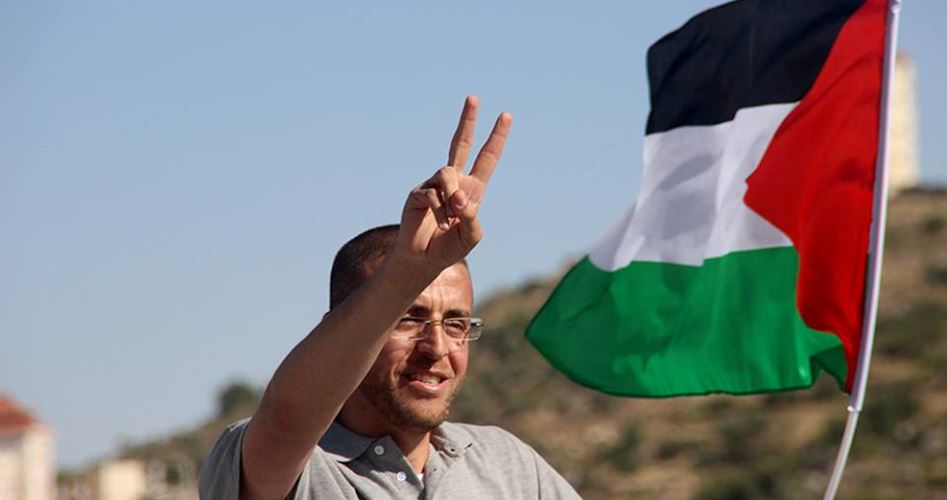The family of the Palestinian journalist Mohammed al-Qiq said on Tuesday that the Israeli occupation authorities (IOA) transferred al-Qiq to solitary confinement in the Jalama prison north of the occupied West Bank in a bid to pressure him to end his hunger strike.
The journalist’s wife Fayha Shalash said that the Israel Prison Service moved her husband from the isolation cells of Hadarim prison to the Jalama prison in a new attempt to tighten restrictions on him.
Shalash pointed out that the new Israeli move falls in line with a series of expected measures taken against her husband who has been on hunger strike for the ninth day in a row.
She explained that the Hadarim administration allowed her husband’s lawyer to visit him on Tuesday but for his surprise he found out that the prison administration had moved al-Qiq to the Jalama prison.
Journalist Shalash held the IOA responsible for her hunger-striking husband’s life especially after isolating him in a prison where Israeli criminals stay and not allowing his lawyer to see him since he started his hunger strike.
The detained journalist’s wife mentioned that Ofer military court near Beitunia town west of Ramallah province is supposed to hold a secret session next Thursday with the Israeli intelligence to consider the administrative detention order issued against al-Qiq.
She added that the IOA has issued a decision to turn her husband to administrative detention for 6 months before reducing the period to 3 months.
Journalist Mohamed al-Qiq announced his open hunger strike on 6th February 2017 in protest at his administrative detention.
The Israeli occupation forces (IOF) re-arrested journalist al-Qiq at Beit El checkpoint to the north of al-Bireh city on 15th January 2017 after he was detained along with relatives of Palestinian martyrs who had attended a protest in Bethlehem and who were later released.
The IOF previously arrested al-Qiq on 21st November 2015 after raiding his house in Abu Qash town to the north of Ramallah and ordered him to 6-month administrative detention.
Al-Qiq started a hunger strike on 25th November 2015 that lasted for 94 days protesting the bad treatment administrative detention and torture before clinching a deal on 19th May 2016 stipulating his release.











